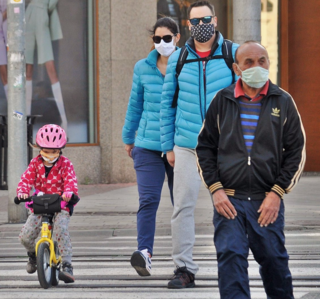Health
Good Information on COVID19
Links to the best websites, twitter experts, podcasts, and other resources
Posted June 18, 2020

The world is awash with information right now about COVID19, some of it excellent, much of it not so trustworthy. Unfortunately, the huge amount of information, often contradictory, and some of it changing over time, has led to a great deal of confusion. Masks for the general public were discouraged at first, but are now recognized to be one of the most important ways to control the outbreaks. More testing is usually helpful, but a positive or negative test may not be a true positive or negative with greater frequency than you might think.
Handwashing was said to be the very best thing we could do, in public, to prevent respiratory disease this side of staying home when sick. Frequent handwashing is still good practice for many reasons, and does seem to help prevent respiratory illness in general, but with COVID, a study of a US Navy ship showed face masks were helpful, but hand washing didn't seem to make much difference.
Is the epidemic petering out or ramping up? The answer is...yes. In places like New York and Massachusetts, who were swamped early on, there are far fewer new cases pretty much every day at this point. In Arizona, Florida, and Texas, who opened up shops and restaurants several weeks ago and have not mandated mask wearing indoors in public, new case numbers are spiking alarmingly.
Do protests (whether they were for opening the economy/anti-mask or the much larger anti-racism protests from the beginning of June onward) spread the disease? So far we haven't seen huge increases in infection from any outdoor activity, like the Lake of the Ozarks pool party. Superspreading events, where one or two infected people end up passing it along to 20-80 people, seem to happen in the context of being indoors, (probably) unmasked, and with people coughing, speaking, or singing. Weddings, churches, bars, nightclubs, and crowded restaurants are all riskier than, for example, movie theaters (where people don't speak much) or airplanes (similarly mostly quiet, and with superior air filtration systems). This doesn't mean you can't catch COVID19 at a movie theatre...if someone sitting right behind and above you is infectious, it's likely you could, just as two protestors yelling at each other without masks could spread it even outdoors, but you won't see a huge number of people in the theatre infected at the same time. Since places like Massachusetts have just opened up churches with social distance and universal masking, it will be interesting to see if those measures prevent any new super spreading in churches.
Since superspreading seems to account for a large amount of the spread of COVID19, preventing or strongly discouraging superspreading activities, as Japan has done, has greatly diminished the outbreaks without draconian lockdown policies.
The good news is that we've learned a lot about COVID19 in the past months, enough to help us navigate the challenging waters of opening up without risking so many lives. The bad news is that the information about basic, clear steps to do so (universal indoor public mask-wearing and outdoors in crowds, for example) have been swamped by political and conflicting news reports and personalities.
Here are some of the sources I use to keep track of the outbreak, the science, and the local community.
News: Television newscast segments and panel shows aren't well suited to scientific communication. Soundbytes of real experts can be too short to deliver the context of new information, and good scientists who usually hedge their findings (because the nature of science is to always be learning more and disproving/modifying old hypotheses) don't sound great on TV compared the pundit who will make firm (but often misleading) statements. The best TV sources of useful information will be your local and state health press conference, as the situation is evolving and we are at different stages of the pandemic different areas.
General information on cleanliness and protecting yourself: CDC.gov
Models, numbers, graphs: Johns Hopkins model, 91-divoc (interactive), Our World in Data (interactive), MIT COVID 19 machine learning model (has been the most accurate of the big mathematical models so far...like most models, it is often wrong but often useful, so don't be frustrated when the numbers change...we are learning more all the time)
Mental health resources for COVID19
Psychology Today therapist search also now includes video/teleconferencing availability information
Twitter experts
The virologists and epidemiologists: @mlipsitch @JeremyKonyndyk @florian_krammer @trvrb @VirusesImmunity @angie_rasmussen @JenniferNuzzo @DocBazac @cmyeaton @UNMC_DrKhan @mugecevik @eliowa
Public health, vaccine science, and journalists: @KizzyPhD @ScottGottliebMD @carlzimmer @HelenBranswell @edyong209 @PeterHotez @kakape @akelvinlab @CT_Bergstrom @robyn_s_lee @linseymarr @KrutikaKuppalli
General COVID news: @V2019N and @BNODesk
Tracking US testing: @COVID19Tracking
Podcasts:
Peter Attia the Drive (interviews with experts)
For Medical Professionals:
Ask for permission to join the private COVID-19 for medical professionals facebook pages
Brigham and Women’s COVID information database
Help in Your Community:
Local newspapers
Local Facebook town pages
Municipal web pages
List of Food Banks (US)
Directory of Local Farmer's Markets (US)
Hopefully these are helpful resources for you!

Copyright Emily Deans MD




